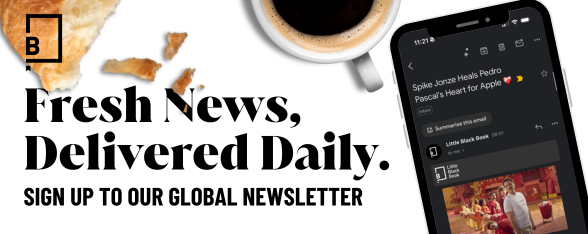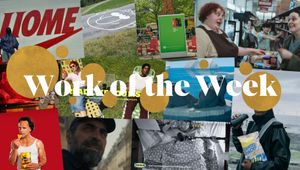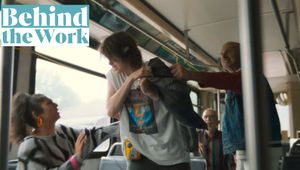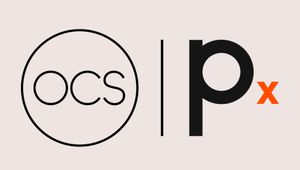
From Production to Inclusive Design: How Unilever is Going Deep with Diversity and Inclusion

“I think that the Unilever advertising production team is really top notch,” says Aline Santos. “In many ways they created the playbook for the whole industry in terms of how to play with Covid and now they are creating the playbook in terms of how to become inclusive when thinking about advertising production.”
Unilever has set the industry standard when it comes to diversity, inclusion and representation in its communications thanks to its Unstereotype initiative. But as the behemoth has made progress in terms of representation in its communications, and processes designed to eradicate harmful stereotypes from its advertising, it’s now moving to what it calls its ‘Act 2’. That means drilling down to every part of the marketing suite, from research to brief-setting to production – as well as shaping how the wider business works with talent, suppliers and communities.
Aline, who has a dual role as chief brand officer and chief equity, diversity and inclusion officer, says the aim is to ‘go beyond transmission to transformation’. It’s a root-and-branches approach – recent research by Kantar for Unilever found that 66% of LGBTQ+ people aged 18-34 believe people from diverse backgrounds feature in ads ‘just to make up the numbers’. When it comes to representation, the difference between meaningful, substantial change and surface level optics comes from the people making decisions behind the public images and words… and from the processes and ethos within the organisation.
That touches every bit of the business – Unilever has announced they will spend €2 billion annually with suppliers owned and led by people from under-represented groups, and that’s not limited to comms. It includes ingredient suppliers and manufactures too.
When it comes to production, there’s a triple-pronged approach. The first thing is that among the massive roster of production houses, filmmakers, photographers, and artists Unilever works with, there are 3,000 women in 60 different countries. Women are dealing with and leading the majority of those productions. The connection with them is strong, and Unilever has surveyed their partners to find out where they are on their D&I journey. 95% are, says Aline, actively seeking to increase diversity and creative talent so at the very least they know they are working with partners who are aligned on mindset.
But mindset alone is not enough. 89% have already started the journey – and those that hadn’t but have more recently opened up their strategy to embrace a more inclusive approach are, apparently, already seeing results from the change.
Internally, Unilever’s in-house production teams have started investing more in new talent, particularly new talent from under-represented communities. The biggest talent gap they’ve seen is in regard to race and ethnicity, so that’s where they’re focusing their efforts, working with non profit Bid Black, to find amazing talent to work with. As anyone trying to get their way into the industry will know, the hardest thing can be to build a reel of brand work when no one will give you a shot… because you don’t have a reel. That’s a circle of exclusion Unilever are working to break. Across 400 brands, there is such a tidal wave of content being produced that working with new, unproven talent here and there isn’t a risk. It’s an opportunity.
“The majority of the assets you create are in short form, what is the risk that you’re taking? Zero. Come on, this excuse that you can’t take a risk is not appropriate. We can all learn, we can all experiment, we can all give a chance for new talent to emerge. And from short form, if the person does a good job, they’ll do lots of short form and jump into long form,” says Aline. “So far, I have no regrets, no disappointments either. There’s plenty of talent out there, it’s just having the consciousness that this change has to happen, that we cannot have any patience anymore.”
It's big companies like Unilever that hold the media and production budgets, and so when it comes to creating ramps for marginalised talent, it’s their responsibility. “These are the companies that are going to change things. We cannot expect the governments and NGOs to change that,” says Aline.
Production, though, is just one facet of the business touched by this mission. Another area blossoming with potential is inclusive design. The British Standards Institute has given the following definition: ‘The design of mainstream products and/or services that are accessible to, and usable by, as many people as reasonably possible ... without the need for special adaptation or specialised design.’ That’s a broad term, it could relate to product, packaging, or online platforms, so, naturally, for a company like Unilever that’s a vast project.
The most recent example is Degree Inclusive for Rexona (or Sure, depending on what country you’re in). It’s a roll-on deodorant package designed with people with visual impairments or upper limb disabilities in mind. It’s a design project that involved working closely with relevant communities, understanding their needs and constantly refining prototypes with their feedback. The response has been overwhelming, and what the teams have found is that products created with inclusive design can be potentially marketed as mainstream items, meaning that the teams won’t necessarily need to split or complexify supply and manufacturing processes.
But the journey ahead is limitless. “It’s even more challenging area because you have to think completely out of the box. There you absolutely have to work with experts that have lived experience,” says Aline. “In this case, we’re focusing on persons with disability in the upper limbs and visual impairment, but there are so many other challenges. The sky’s the limit and we’re just scratching the top of the iceberg.”
With all this going, the elephant in the room is that the context for ‘Act 2’ is wildly different from the initial launch of Unstereotype back in 2017. The polarised world of cancel culture and so-called culture wars means that even the most benign casting or pro-diversity communication can trigger a small but vocal minority. One would think that might worry a marketer – but not Aline. She is resolute. She’s seen the positive business impact of Unstereotype, but more than that, she knows it’s the right thing to do.
“Absolutely not. I don’t think it scares anyone at Unilever,” says Aline, who says there are far more pressing obstacles the team needs to work on. “I think the biggest challenge we have is changing our own human behaviour, the inertia that we all have because for years and years we’ve been going straight to stereotypes. Now we are conscious and to be conscious it takes more attention and there are different paths that we didn’t have in the past. I don’t feel any concern from this point of view, and I understand what you are saying and I can see that but at Unilever our biggest challenges are around that change in behaviour.”
That’s not to say it isn’t something that worries the wider marketing industry. But for those who are shaken by the whisper of negative reaction, Aline says that the only thing to do is start to learn. Standing still means stagnation and a loss of opportunity – collectively marketing can shape society.
“Externally talking to lots of colleagues, I can see that some of them are nervous about it, but my suggestion to them is to start this journey somewhere; start by connecting with the community so you don’t get something totally off. In time you will be much more confident that you’re doing a good job. Of course people also need to educate themselves. There is work to be done, it’s not going to come from the heavens and then suddenly we can say, ‘ OK, now we are doing a brilliant job’. It’s not going to happen. But even with work, sometimes people don’t get it right, that’s OK.”
While Aline has been a catalysing force behind Unstereotype, she acknowledges that progress would not be made if the rest of Unilever’s leadership did not wholeheartedly believe in and support it. Alan Jope, Unilever’s CEO, has taken an instrumental role in making sure that intentions turn into actions and realities across the global organisation (“you know, I don’t have superpowers, but CEOs have superpowers.”)
Over time, key forces and figures have come into alignment at Unilever and the momentum has built, accelerating initiatives like a sling shot. But not every organisation is there. That’s OK, says Aline, but she urges them to take action.
“We have to be a little bit patient with some brands and some companies that are starting the journey - I have sympathy for them because at least they are starting. What I don’t have any sympathy for is the ones who are completely neglecting this – we have the opportunity to shape culture, we have the opportunity to shape the next generation. Imagine if our advertising can collectively help us to shape a new generation!”















